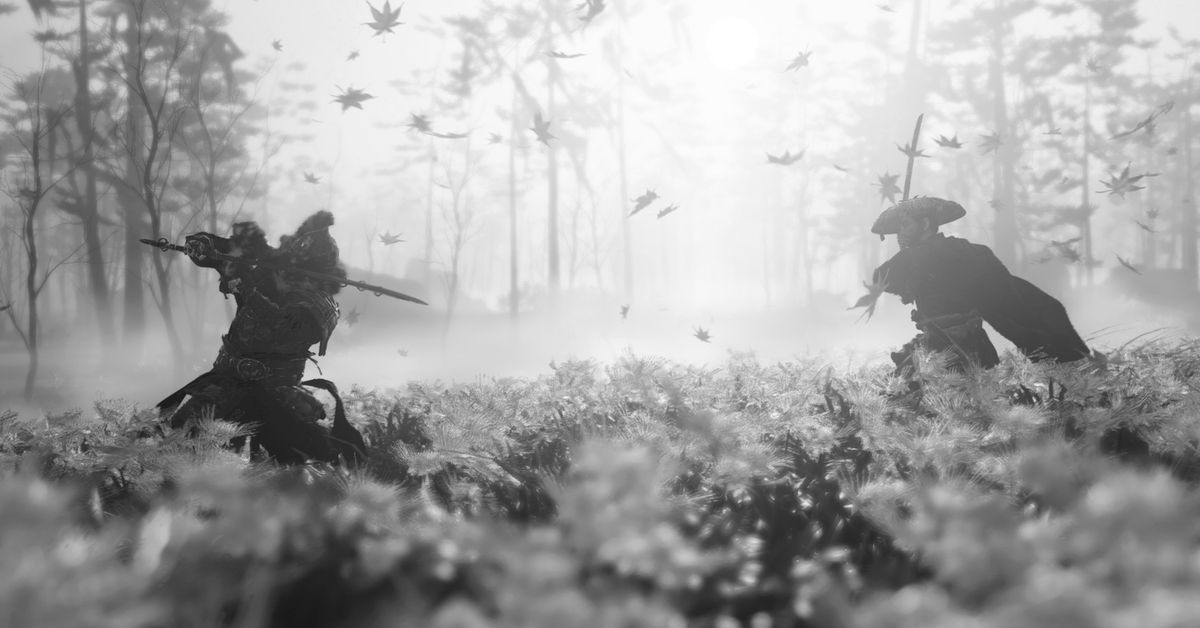- Joined
- May 30, 2020
- Messages
- 601
- Trophies
- 0
But in embracing “Kurosawa” as an eponymous style for samurai adventures, the creatives behind Ghost of Tsushima enter into an arena of identity and cultural understanding that they never grapple with. The conversation surrounding samurai did not begin or end with Kurosawa’s films, as Japan’s current political forces continue to reinterpret history for their own benefit.
In 2019, to celebrate the ushering in of the Reiwa Era, the conservative Liberal Democratic Party commissioned Final Fantasy artist Yoshitaka Amano to depict Japanese Prime Minister Shinzo Abe as a samurai. Though described as being center-right, various members of the LDP have engaged in or have been in full support of historical revisionism, including the editing of textbooks to either soften or completely omit the language surrounding war crimes committed by Imperial Japan. Abe himself has been linked to supporting xenophobic curriculums, with his wife donating $9,000 to set up an ultranationalist school that pushed anti-Korean and anti-Chinese rhetoric. The prime minister is also a member of Japan’s ultraconservative Nippon Kaigi, which a U.S. congressional report on Japan-U.S. relations cited as one of several organizations that believe that “Japan should be applauded for liberating much of East Asia from Western colonial powers, that the 1946-1948 Tokyo War Crimes tribunals were illegitimate, and that the killings by Imperial Japanese troops during the 1937 ‘Nanjing massacre’ were exaggerated or fabricated.”
The preservation of the Bushido code that was highly popularized and utilized by Imperial Japan lives on through promotion by history revisionists, who elevate samurai to a status similar to that of the chivalric knight seen in Western media. They are portrayed as an honor-bound and noble group of people that cared deeply for the peasantry, when that was often not the case.
A game that so heavily carries itself on the laurels of one of the most prolific Japanese filmmakers should investigate and reflect on his work in the same way that the audience engages with other pieces of media like film and literature. What is the intent of the creator versus the work’s broader meaning in relation to current events, or the history of the culture that is ultimately serving as a backdrop to yet another open-world romp? And how do these things intertwine and create something that can flirt on an edge of misunderstanding? Ghost of Tsushima is a surface-level reflection of these questions and quandaries, sporting a lens through which to experience Kurosawa, but not to understand his work. It ultimately doesn’t deal with the politics of the country it uses as a backdrop. For the makers of the game, recreating Kurosawa is just black and white.

Ghost of Tsushima, Kurosawa, and the political myth of the samurai
Unpacking the baggage of well-intentioned homage
 www.polygon.com
www.polygon.com
An interesting news article from Polygon on the interpretations of samurai, what became an adapted for political use over the years and how Sucker Punch doesn't fully grapple with its historic or modern context in Ghost of Tsushima.